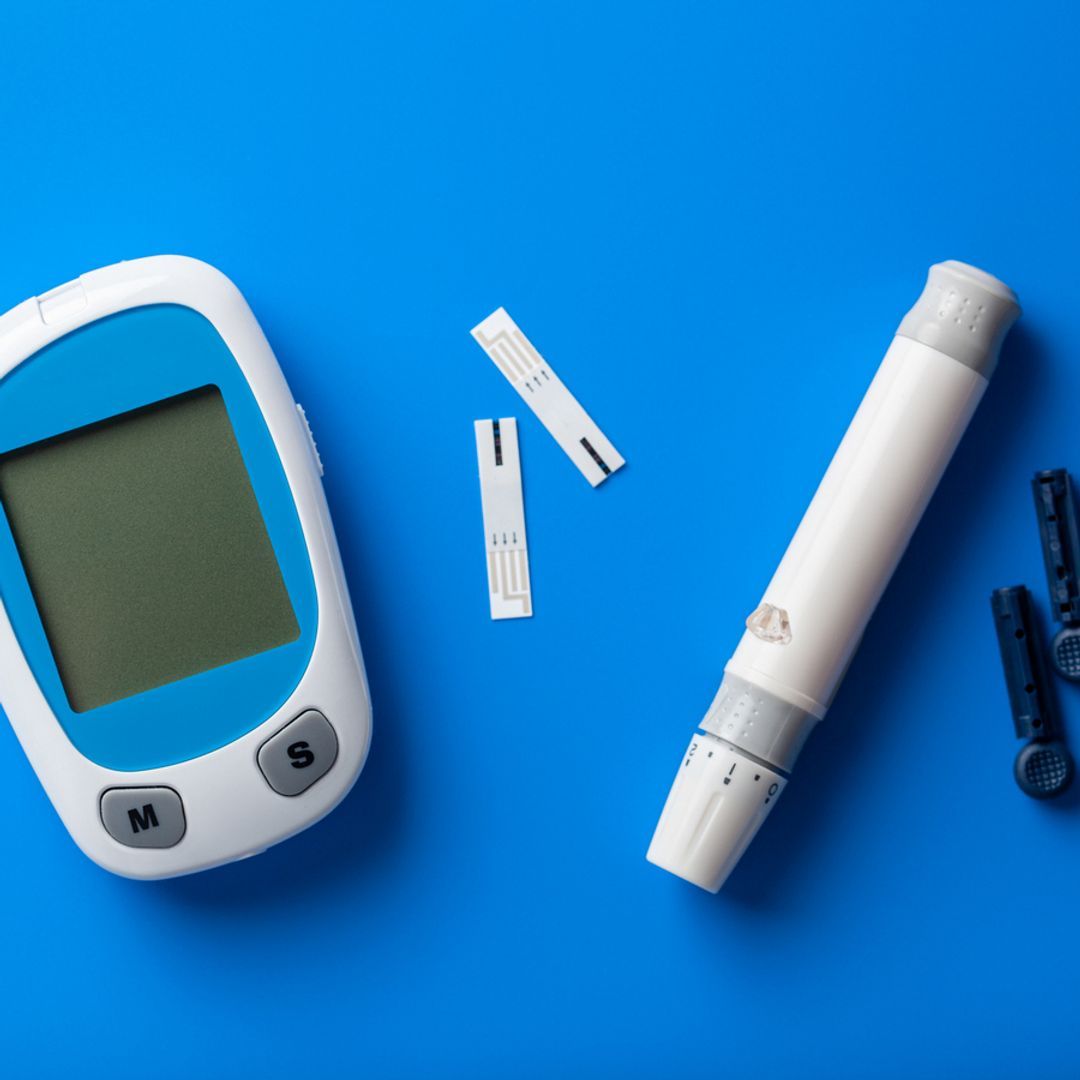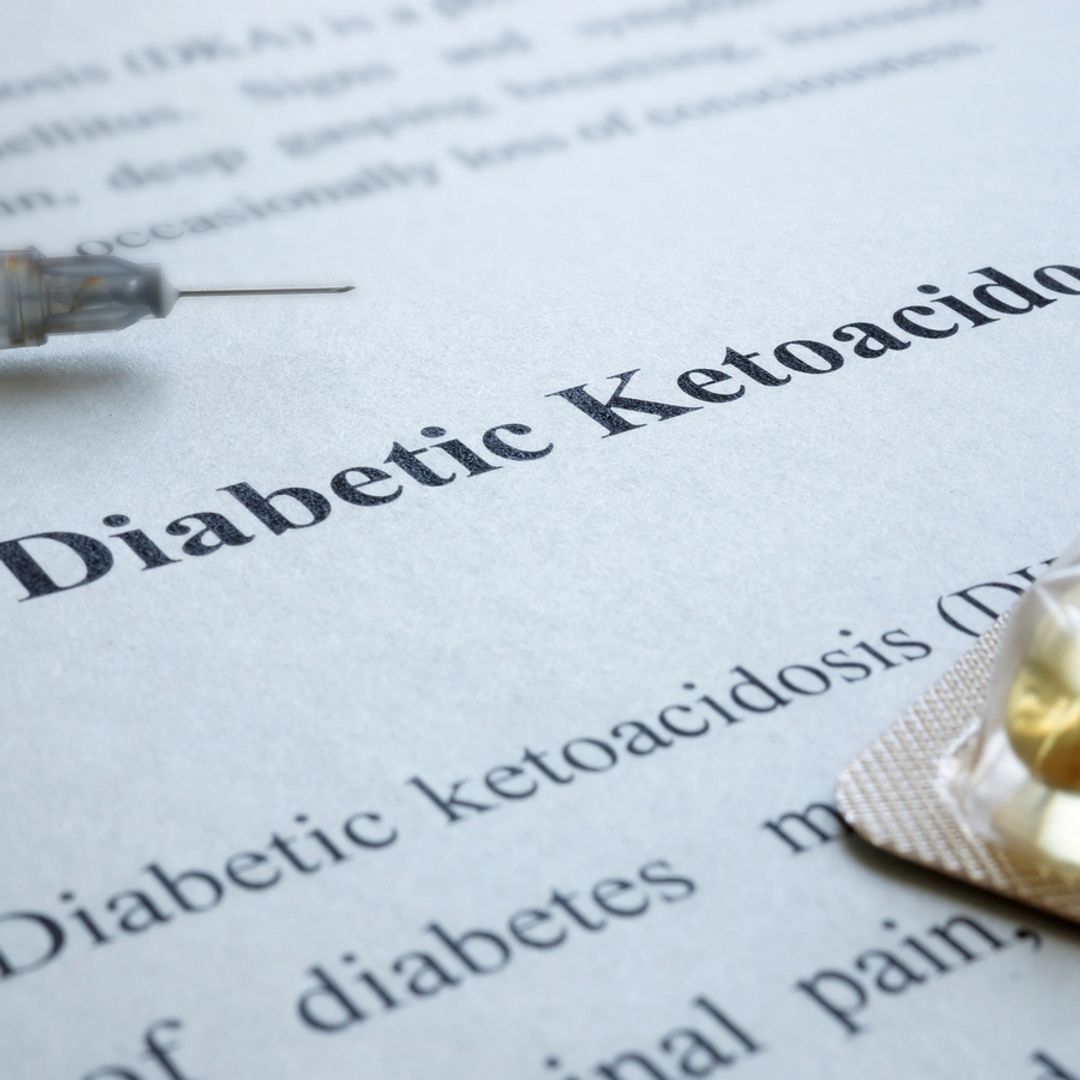A Guide to At-Home Blood Ketone Tests

Therefore, routinely checking your blood ketone levels with an at-home ketone test is crucial to ensure your blood remains within a safe ketone range. Keep reading to learn more about how to test ketone levels at home.
Ketones are a substance created in the liver as an alternative source of energy to sugar. Through a process called ketosis, the body breaks down fats to use as fuel for cells when glucose isn’t available, subsequently causing ketones to accumulate in the blood and urine.
People following a low-carb diet to lose weight reach a state of ketosis by depriving the body of carbohydrates, so it switches to burning fat for energy instead. People with type 1 diabetes may also have a high ketone level in their blood and urine due to a lack of insulin or the body’s inability to use insulin to metabolise glucose.
To compensate for this dysfunction, the body will break down fats instead; however, ketone levels that rise too rapidly can cause the blood to become acidic, leading to a life-threatening condition called diabetic ketoacidosis (DKA) if not diagnosed and treated quickly.
Therefore, routinely checking your blood ketone levels with an at-home ketone test is crucial to ensure your blood remains within a safe ketone range. Keep reading to learn more about how to test ketone levels at home.
What Is A Ketone Test?
A ketone testing kit can accurately identify and record blood ketone levels and determine whether you are at risk for DKA. Many forms of ketone testing are available, including urine test strips and a breathalyser; however, using a blood ketone metre is the most reliable method for accurate ketone readings. These devices often check for both glucose and ketone levels to detect high levels early and allow you to seek immediate medical treatment if necessary.
 How Does An At-Home Ketone Test Work?
How Does An At-Home Ketone Test Work?
An at-home ketone test works in a similar way to a blood glucose test and involves inserting a single ketone test strip into the metre. You then prick the finger with a lancet (a fine needle) to draw a few drops of blood and place it onto the test strip. After a few seconds, the metre will return a digital ketone reading on the screen.
A result lower than 0.6mmol/L is considered a normal ketone range, while a reading up to 1.5mmol/L indicates a slightly increased risk of DKA and requires another test after a couple of hours. A reading above 1.5mmol/L means you have a moderate to very high risk of DKA and should seek medical assistance immediately.
Why Is Blood Ketone Testing Important?
 Regular blood ketone testing is essential to preventing diabetic ketoacidosis, particularly if you are at a higher risk of developing the condition. Even if you don’t have diabetes, you may be at risk for DKA from another health condition.
Regular blood ketone testing is essential to preventing diabetic ketoacidosis, particularly if you are at a higher risk of developing the condition. Even if you don’t have diabetes, you may be at risk for DKA from another health condition.
If you’re following a low-carb keto diet for weight loss, a blood ketone test can provide useful feedback on whether your efforts are effective in helping you reach your weight loss goals. Additionally, if you’re displaying symptoms of DKA while observing a keto diet, a ketone blood test may determine whether or not it is safe to continue your diet.
Who Should Take A Blood Ketone Test?
Anyone with diabetes should take routine blood ketone tests. While people with type 1 diabetes have the highest risk of developing DKA, it can also affect those with type 2 diabetes, although the condition is not as common in the latter. If you develop diabetes during pregnancy, your doctor may also recommend you get tested.
 There are cases where your blood ketone levels may be dangerously high, even if you don’t have diabetes. For instance, having an eating disorder, frequent vomiting or diarrhoea, or an alcohol use disorder can all cause your body to burn fat instead of glucose for energy, thereby increasing ketone levels in the blood.
There are cases where your blood ketone levels may be dangerously high, even if you don’t have diabetes. For instance, having an eating disorder, frequent vomiting or diarrhoea, or an alcohol use disorder can all cause your body to burn fat instead of glucose for energy, thereby increasing ketone levels in the blood.
There are specific signs to look out for that may indicate DKA. You may require a ketone blood test if you exhibit any of the following symptoms:
- Frequent urination
- Increased thirst
- Nausea and/or vomiting
- Sweet-smelling breath
- Exhaustion and fatigue
- Headaches
- Confusion
- Deep or fast breathing
- Abdominal pain
- Stiff or aching muscles
The above symptoms can occur over 24 hours and, in some cases, even faster.
Where Can I Get A Ketone Blood Test Kit?
If you have diabetes and take insulin, you can usually get a ketone blood test kit prescribed to you by your doctor free of charge.
Alternatively, you can obtain a test kit online or from your local pharmacy if you think you may be at risk of DKA or simply want to test how well your body is breaking down fat.
Devices such as the Abbott - FreeStyle Optium Neo, Menarini - GlucoMen LX Plus, or Keto-Mojo GKI-Bluetooth Blood Glucose and Ketone Metre are all able to test both blood ketone and glucose levels in the convenience of your home.
Take Control Of Your Health With A GlycanAge Test
Knowing your blood ketone levels can be a useful indicator of your health and prevent a potentially life-threatening medical emergency. It can also be useful in determining whether you are in a state of ketosis, which can help you achieve a healthier lifestyle by aiding with weight loss and improving your overall health.
With that said, when it comes to taking control of your health, a GlycanAge test may be the most accurate and reliable way to identify factors that increase your susceptibility to disease and provide meaningful insights so you can make changes to improve your healthspan.
A GlycanAge biological age test provides powerful, objective feedback on the current state of your health by assessing the extent of inflammation in your body. Based on this information, the test can accurately determine your biological age and risk for certain diseases, including diabetes, as a result of your lifestyle long before they occur. 
A 1-1 consultation with a scientist will help you understand your test results to establish how different factors such as lifestyle, nutrition, illness, and genetics affect your health. A qualified healthcare professional will then create a personalised action plan to help you reverse damage in your body and reach your health goals.
The at-home testing kit involves a finger prick blood sample that must be mailed to the GlycanAge lab. After 3-5 weeks of rigorous analysis, results will be available.
If you’re ready to invest in your health, various packages and plans are available at affordable price points. A single test is recommended for those starting their wellness journey who want basic feedback. In contrast, two tests are suited to those who want to measure how effective lifestyle changes are in reversing their biological age. Alternatively, a custom plan is also available to more advanced users keen to make sustainable improvements to their health and achieve longevity.



